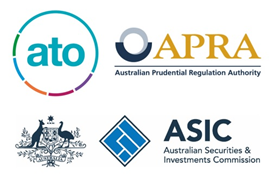Six Key Factors When Investing in Bonds

OTG Capital
So you're considering investing in bonds now you know a little more (click this link to see our first Livewire article on An Introduction to Bonds) - but don't jump just yet!
Remember we said that a bond is nothing more than a loan, right? When we devised these six key factors, we took a common-sense approach to how we evaluate our own investments. Even though many of our investments are much larger than what you might be contemplating presently, the principles are exactly the same.
So go into your mind’s eye and imagine you were asked to lend money to a family member - what are the considerations you might discuss before parting with your hard earned cash?
Six Key Factors When Investing in Bonds
These 6 factors are not in any particular order or priority. Depending on the bond in question, some factors may end up weighing more heavily than others.
Each deal or investment is potentially different, so remember to be flexible in your thinking.
Reputation
Is the company or investment fund you are providing your funds to a good corporate citizen? Simple things like do they pay their debts to their suppliers/vendors? What is their track record on issues that matter to you (environmental, political, ethical etc.), Do they treat their customers and/or staff well?
The internet is a wonderful tool these days in which you can let your fingers do the walking and access countless data points that matter to you and how you evaluate your prospective bond.
Remember, just like a bank or finance company might do a credit check on you, you are able to do the same in reverse.
Many of the finance websites including Yahoo! Finance, Bloomberg, Motley Fool and the site you're reading right now. All provide free information gathering services and searches on companies. Check out customer blogs, comments about how they deal with complaints or bond refund/redemption requests.
 ASIC, APRA & ATO can all assist with databases & up to date information
ASIC, APRA & ATO can all assist with databases & up to date information
The government is also a great place to check too. ASIC, the ATO and APRA all provide database look up features that check on AFS License matters, certifications, cancellations or impending court actions on troublesome corporations.
You have no excuse for not doing a 5 minute review via an internet search engine to satisfy your curiosity.
Maturity
Importantly, you need to be clear with your borrower (the bond issuer) as to when you want your money back. If the bond requires a minimum lock up period, but you require ready access to your money, then clearly this mismatch is not suitable.
Set your criteria for when you want your money back (this is often referred to as your liquidity requirements), and understand that if you need early access to your money, you either may not be entitled to it, or you may have to pay a penalty or administration surcharge to recover your funds before the agreed maturity date
Return v Risk
Is the return for risk realistic, and does the bond issuer’s business model make sense?
Product Disclosure Statements and Information Memorandums issued by investment funds are lengthy and can be confusing. Nevertheless, it is your duty to read all the fine print, particularly if you are deemed a wholesale or sophisticated investor.
Try to imagine what is actually happening with your money and how it gets used to make a return. If you’re unable to clearly understand how the investment fund makes its returns, then I put it to you that no matter how high the yield is, it’s just not worth the risk.
 how is the money being made?
how is the money being made?You MUST understand how the money is made, and if the yield is unusually high in comparison to other market offers or similar asset class funds, then pause, educate yourself and make a considered assessment in relation to risk versus reward. And if the representative starts getting pushy trying to close you for a signature or insist there is a time imperative – run!
Remember if the offer appears too good to be true, it usually is
Collateral
Collateral is sometimes called security or asset backing. This is what you use to protect your loan. Remember your mortgage with the bank (the death pact) - what happens if you don’t make the repayments? The bank will eventually take your home away.
Assessing your bond’s security or collateral should be seen in the same way. In running my own investment fund, this is where we spend most of our time is checking the collateral is real and can be turned back into cash if required.
Plan B/Alternative Actions
The number of times I’ve spoken with outraged investors when they find out they’re not getting their cash back, but they receive a tranche of shares in their stead.
This is not unusual I might add. If bond issuers are having cash issues, when bond maturities come around, it is not uncommon to have clauses that provide for “convertible notes” to be issued instead of cash.
By the very nature of the term “convertible” – they are converting your cash into something else – usually shares or options in the company or trust you invested in.
If in doubt, go back, read your documentation and understand what the options are at maturity. If you don’t want to be “converted out”, either have it written out of the bond – or simply don’t take that risk.
There are far too many horror stories out there of very late redemption's (years in some cases) or owning shares in a dead-beat company.
Tradeable
Lastly, and this is not a deal breaker but should always be considered. With smaller issues in particular, many bonds are not always tradeable in an open market scenario.
This means you can only redeem your cash from where you invested (the bond issuer). If the only option going is convertible notes or late redemption, this may not be ideal if you need to get to your funds urgently.
Tied in with liquidity/maturity and Plan B factors, being able to openly trade bonds is useful, but not always necessarily a showstopper. Particularly if the issuer has a strong reputation and redeems to their investors faultlessly.
Investing in Bonds
 it's not rocket science - really!
it's not rocket science - really!I can’t stress this enough – investing in Bonds can be as risky or as safe as you make it.
It really isn’t rocket science, you lend money out, and you make sure it comes back in.
And like any other investment if you don’t understand it – don’t invest!!
Never miss an update
Stay up to date with my content by hitting the 'follow' button below and you'll be notified every time I post a wire. Not already a Livewire member? Sign up today to get free access to investment ideas and strategies from Australia's leading investors.
2 topics

Ray Trevisan is a Fund Manager and Director of OTG Capital, a boutique wholesale investment fund specialising in asset backed securities. He has over 40 years of business and investing experience.

Ray Trevisan is a Fund Manager and Director of OTG Capital, a boutique wholesale investment fund specialising in asset backed securities. He has over 40 years of business and investing experience.
